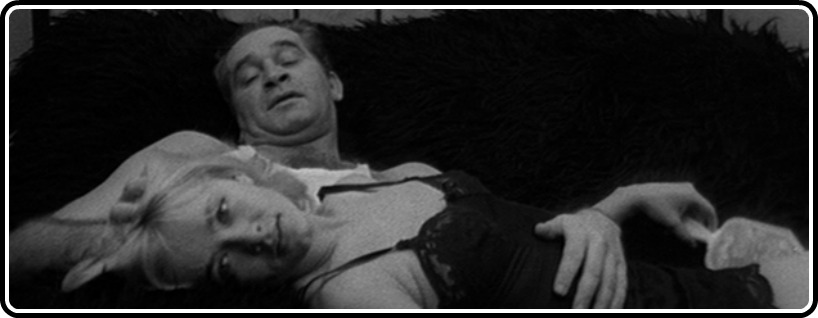
When the time came last weekend for me to choose the next subject for my Journey Through the Eclipse Series, I didn’t really have any particular agenda or topic at hand. Among the titles I have yet to review, none of them reminded me of the New Year holiday or any of the rituals that typically occur when the calendar starts afresh. Nor did any clear links to other films I’m currently watching spring to mind. It was kind of refreshing actually, just choosing a film I felt like watching with no need for thematic justification whatsoever. Maybe I’ll have to do that more often as I start narrowing down the list of Eclipse catalog features in the months ahead. But as it turns out, the one I chose at random this week, Man Is Not a Bird from Eclipse Series 18: Dušan Makavejev – Free Radical, shares some intriguing characteristics with my most recent Criterion Reflections review, Pigs and Battleships.
Yes, both films have animals in their titles, somewhat incongruently too – but more significantly, they each signaled the emergence of directorial voices that went on to stir up some of the most provocative cinematic expressions of the 1960s and 70s. Both Shohei Imamura and Dušan Makavejev established their notoriety by their unblinking gaze into the baser aspects of human nature, and in these two films, they each broke loose from the creative shackles that had once held them back. Each tale takes place in grimy working class milieus that contradict the prevailing p.r. management of their respective societies, and it’s reasonable to conclude that both directors felt compelled to adopt their increasingly iconoclastic approach in response to the blatant deceit and manipulation they picked up from the cultural arbiters of their day.
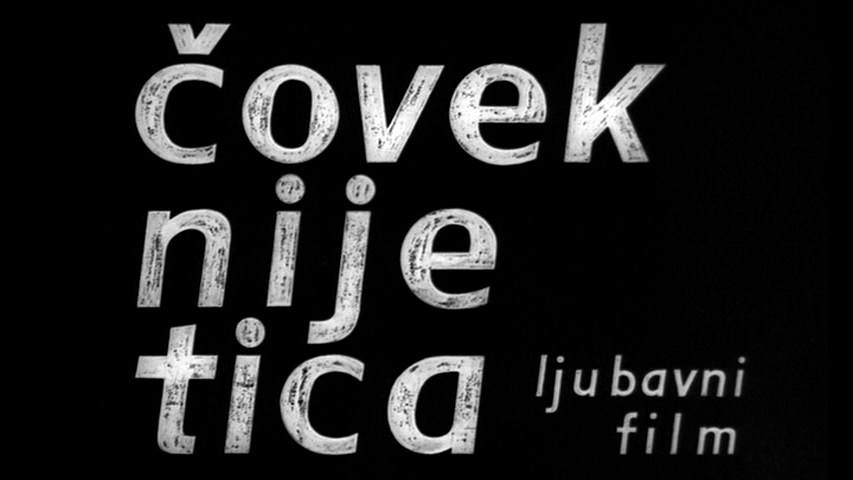
In Makavejev’s case, his beef was with the stultifying centralized bureaucracy that governed the Socialist Federal Republic of Yugoslavia in those decades, a regime that like most socialist entities tried to micromanage popular morale by glorifying common laborers who set aside personal ambitions for the sake of collective advancement. Though it’s fair to call Makavejev an “anti-Communist” film maker, don’t assume that means he was some kind of right-wing reactionary. Far from it; his interest, both in this debut feature (his first non-documentary) and in the increasingly outrageous works that followed, was to expand and explore the furthest boundaries of artistic and intellectual freedom. While Man Is Not a Bird looks rather tame in comparison to what was to come from Makavejev, the ingredients gathered here are already in place and ready to germinate into one of the most fascinating and unexpected creative outbursts ever to emerge from the Communist world during the heyday of the Cold War.
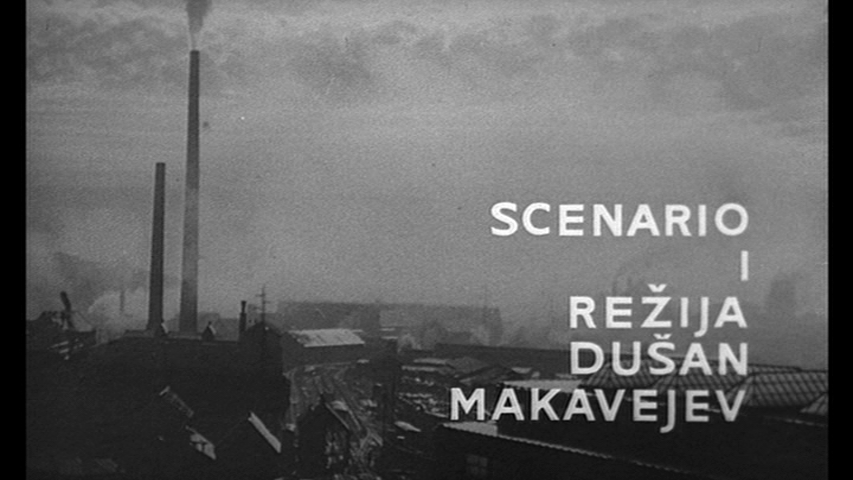
Man Is Not a Bird opens with a short monologue delivered by a hypnotist named Roko, who expounds for a few minutes on the folly of traditional superstitions that continue to dominate the consciousness of ordinary citizens even in an age when scientific research routinely debunked such notions. With calm determination, he lays out a clear presentation of just how easily the human mind can be swayed to believe things that are inherently irrational, even nonsensical when subjected to dispassionate analysis. Though it’s easy to agree with his verdict on the absurdity of old wives tales and customs originating from Europe’s pagan past, what occurs over the course of the film remains so common and familiar to most of us that we can easily overlook Makavejev’s subsequent indictment of other forces, governmental and social, sexual and emotional, that also provoke humans to behave in ways that are no less deserving of ridicule, when stripped down to their essence.
The above clip, which begins immediately after the credits have run their course, shows one such impulse at work, as a voluptuous cabaret singer uses her talents to work a tavern full of drunken laborers into a frenzy. It quickly devolves from raunchy flirtation into a rowdy brawl, the potent combination of licking lips, gyrating hips and free-flowing suds proving to be more than the repressed libidos gathered in the room can manage before the lid blows off the place. Makavejev’s ogling handheld camera thrusts us right into the midst of the chaos, before cutting away to introduce us to a few of the other main characters: Barbulovic, the bottle-smashing drunkard who gets hauled away by the cops; Rudinski, an engineer assigned by the government to increase efficiency and install new equipment at the copper mine that sustains the nearby community; and Bosko, the young truck driver escorting Rudinski to the worksite and filling him in on his sexual exploits (hence, the notches carved into his steering wheel.) I also kind of dug the band, which seemed to me something along the lines of a proto-Leningrad Cowboys.
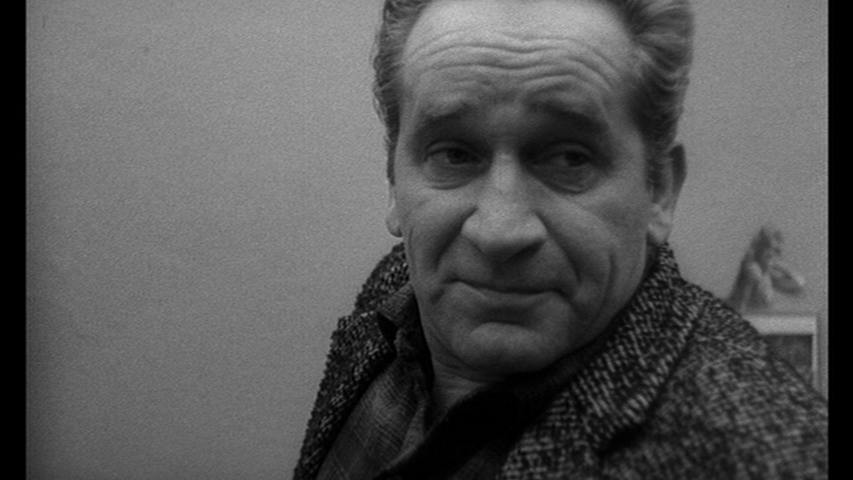
Makavejev’s ruminations on human bondage disguised as an imitation of freewill and self-determination center upon a pair of dysfunctional romances. The primary story involves the aging Rudinski, a man wholly committed to his work (for lack of any better alternative), whose technical skills have taken him around the world to tackle numerous big jobs without offering much in the way of lasting satisfaction or a sense of accomplishment. Whenever he’s asked about his home, his family, his background, his silent avoidance and lack of disclosure describes with painful eloquence the emptiness he carries with him wherever he goes. Without saying much more over the course of the film, it’s apparent that he’s aware of the treadmill he’s been on for the past few decades, and recognizes the symptoms of an inevitable decline in the not too distant future. But as fortune or circumstance would have it, he finds himself a room to lodge in, at the home of…
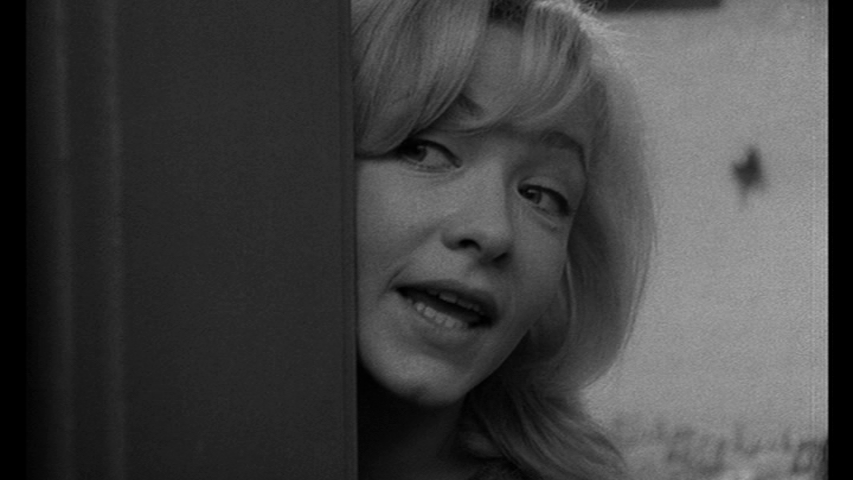
… Rajka, a charming and playful young hairdresser, who still lives with her parents, presumably because her humble occupation and unmarried status makes living on her own an impractical and unaffordable indulgence. At first glance, the budding attraction that takes place between the two may leave the viewer incredulous. Milena Dravic, the actress who plays Rajka, is so tantalizingly effervescent in her role that one wonders why she would be drawn to such a wrinkled old man. But his outsider role, his status as a prominent technician in this sooty proletarian outpost and his air of worldly experience places him in clear distinction to the overly familiar drudges who’ve been hitting on Rajka ever since she came of age. Rudinski, despite his advancing years, represents a break from the norm, perhaps even a ticket out of that industrialized backwater. Rajka, of course, is badly fooling herself, just as Rudinski is in thinking that he could provide lasting satisfaction to a vivacious young woman like her. But they persist in their illusions for a time.
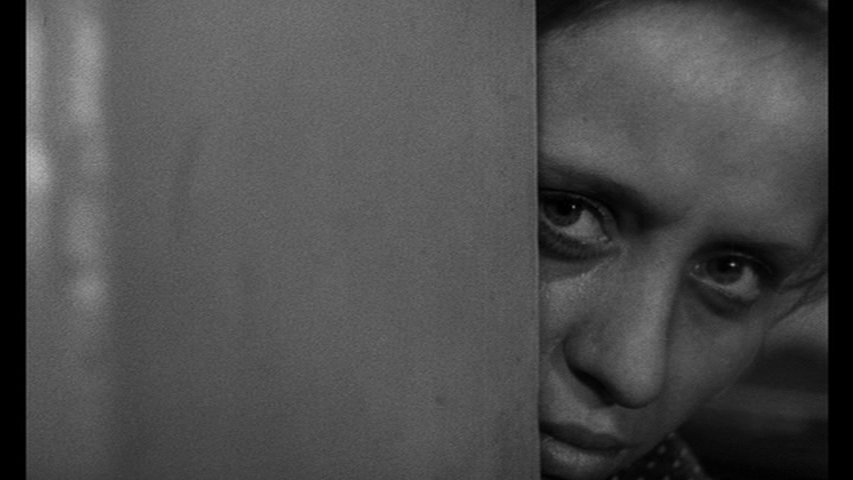
The other story, less effectively rendered but still grudgingly emotive, involves the laborer Barbulovic (after spending a few days in jail following his arrest) and his beleaguered wife, stuck in an abusive co-dependency but looking for an exit from that vicious cycle. Barbulovic is the prototypical male chauvinist pig, giving away his wife’s belongings to his mistress, berating her when she cries about it and defending his actions as his husbandly rights when taken to task by the local magistrate after the two women tear into each other on the street.
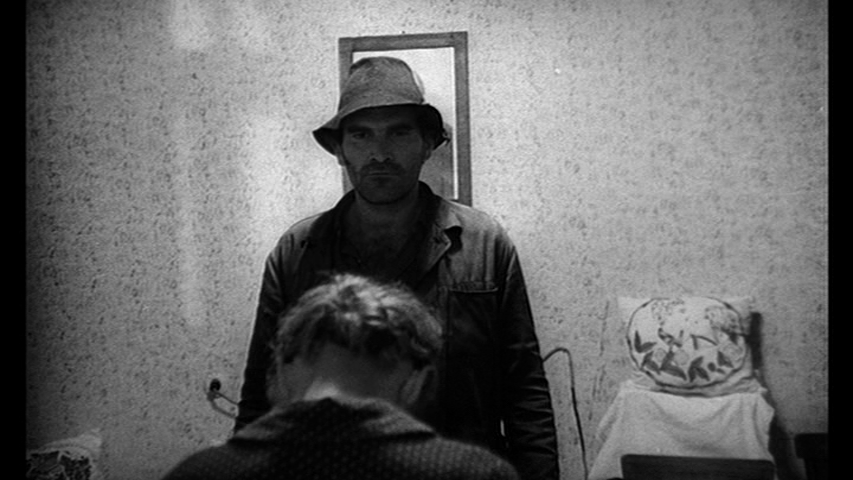
It’s a clear example of kick-the-dog syndrome, where a powerless, humiliated man winds up taking out his rage on members of his household upon realizing he’s stuck in a grind that provides no other outlet or opportunity for advancement out of his wretched conditions.
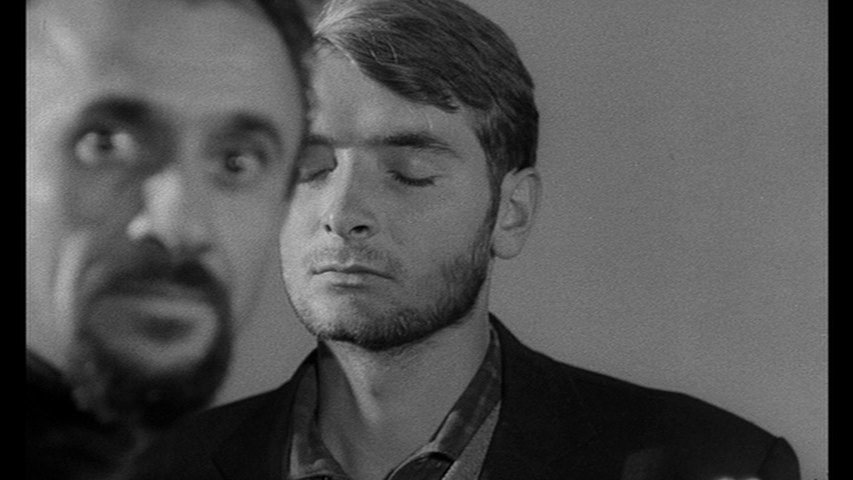
With the stage set, Roko re-enters the scene, this time as a sideshow attraction meant to offer an hour of cheap amusement to residents of the mining town. He puts his piercing gaze, his assured, mesmerizing voice and his invincible powers of persuasion on display, leading the subjects of his hypnotic demonstration to behave comically, impressing his audience to the point that they’re laughing out loud, their mocking peals undiluted with any discernible trace of self-recognition as they gawk at the absurd spectacle.
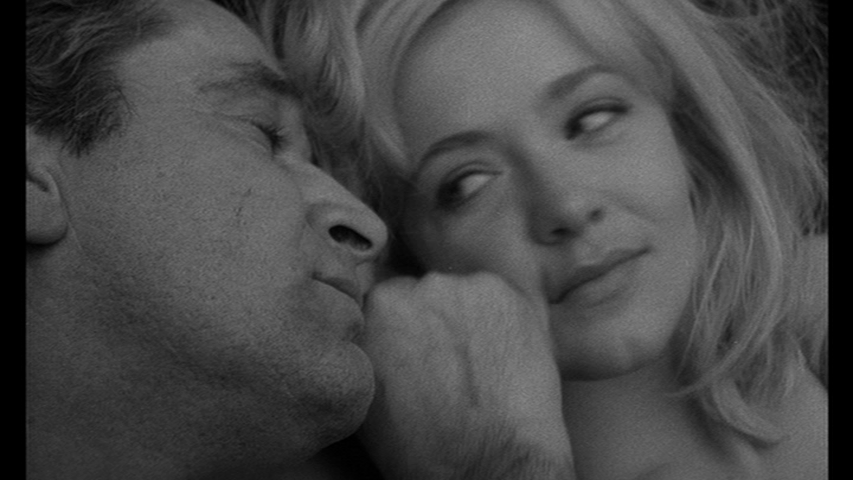
No less absurd, though more accessibly delightful in its jaded romanticism, is the affair between Rudinski and Rajka as it reaches its inevitable consummation and proceeds from there to its equally inevitable dissolution. Makavejev departs boldly from his grainy documentary approach as he films the lovers enveloped in deep shadows and high-contrast illumination over transient patches of exposed skin. A lush symphonic soundtrack elevates the scene, for a few moments at least, toward something approaching the sublime. It’s certainly a more chaste and tender portrayal of sexuality than Makavejev is infamously known for, presumably attributable as much to the censorship standards of the day as to any distinct reticence on the director’s part to take it much further.
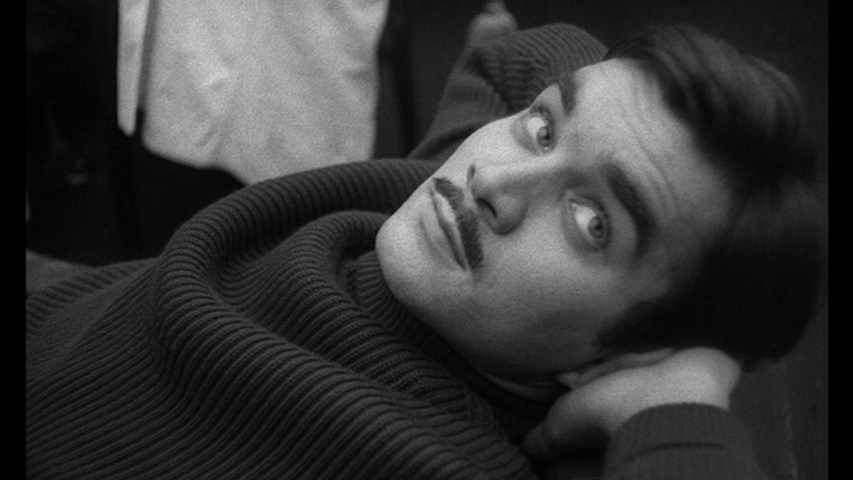
Just about the time that Rudinski is deluding himself into promising Rajka that they might have a future together after his work assignment is finished… just about the time that Rajka is deluding herself into believing that her spent and satisfied melancholy lover might have developed some sincere feelings of commitment to her… along comes Bosko, virile small-town ladies’ man, to re-introduce himself to Rajka, now that her sexuality has been awakened, and assert the generational claim upon women his own age that will ultimately lead him to prevail over the older, more worn down and compromised Rudinski.
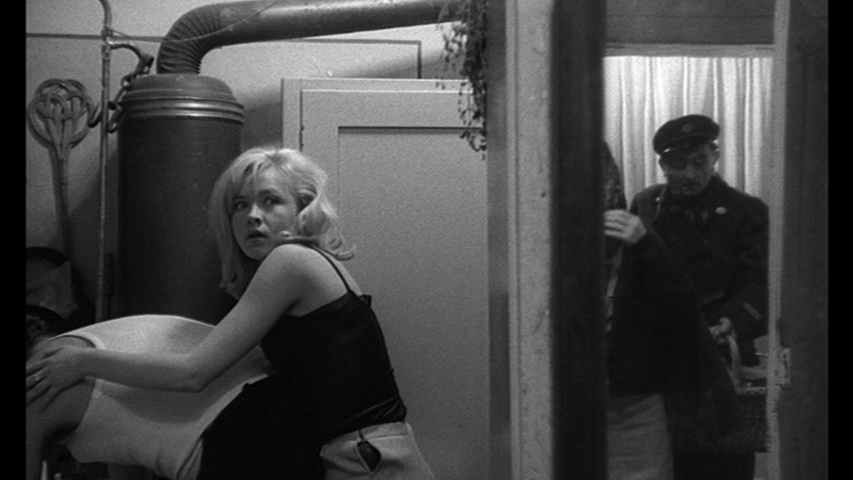
Before Rajka’s definitive break with Rudinski can occur though, the transformative crisis, by way of unwanted and unexpected parental mediation, must first transpire.
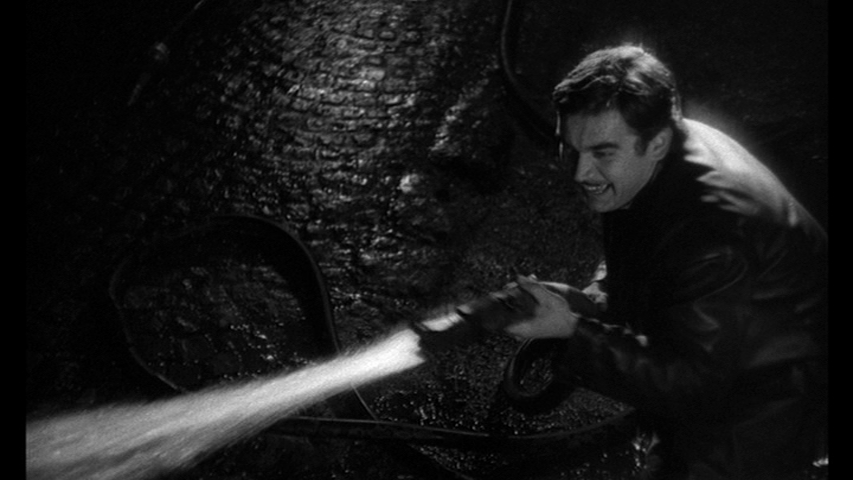
While Rudinski is being ceremonially honored with a medallion and a choral presentation of the final movement of Beethoven’s Ninth, Rajka finds something better to do, hooking up on the spur of the moment with Bosko in a company truck. It’s another erotic encounter rendered in chiaroscuro tones, but this one more vigorous and playful, less clingingly desperate than her episode with Rudinski…
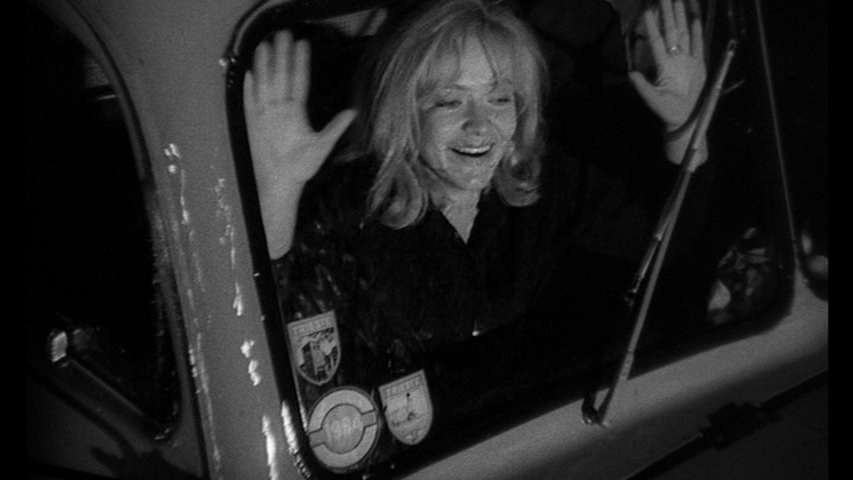
… as Rajka experiences a new kind of liberation, a sense of empowerment that, though it also may be tainted by its own distinct illusions of freedom, still retains a degree of integrity that a necessarily subordinate relationship with Rudinski would never have allowed. That realization doesn’t completely ameliorate the heartbreak that follows Rajka’s and Rudinski’s reunion/break-up scene, when both realize their fundamental incompatibility, despite the genuine tenderness of feeling. But it does provide a shred of hope and dignity for Rajka to build on as she runs across the desolate industrial wasteland that’s she’s consigned, at least for awhile, to call home.
It wouldn’t be a proper Makavajev movie if we didn’t have a few flourishes of wacky acrobatics, circus atmospherics and non-sequitor documentary inserts tossed in every so often. See my reviews of Love Affair and Innocence Unprotected for a few more examples of what I’m talking about. This clip serves as the culminating scene of Man Is Not a Bird, bringing together most of the key figures before we part company, witnessing the tawdry antics of a low-budget circus, yet another attempt by the powers-that-be to distract the workforce into thinking they’re having a good time.
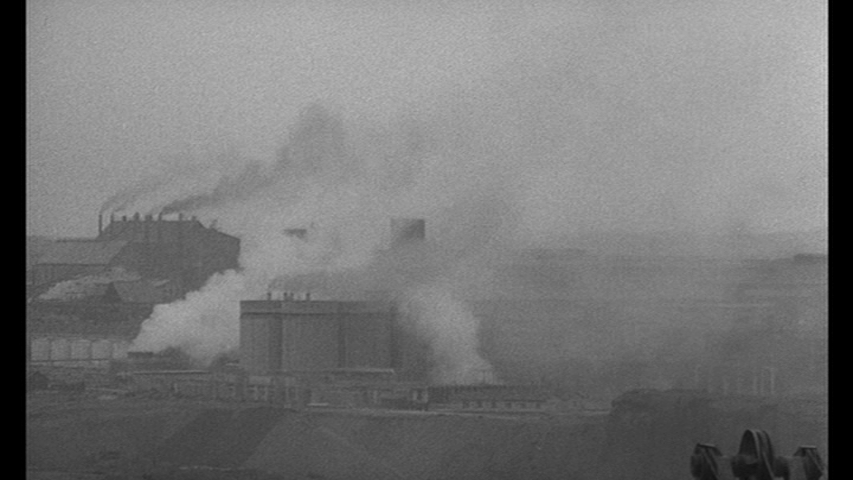
And as if to give lasting validation to his claim that Man Is Not a Bird, Makavejev leaves us with this final dismal image as evidence. Because if Man was a bird, he’d obviously build and maintain a healthier, more inhabitable nest.



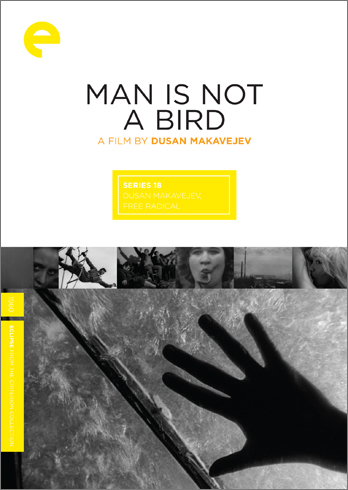

1 comment